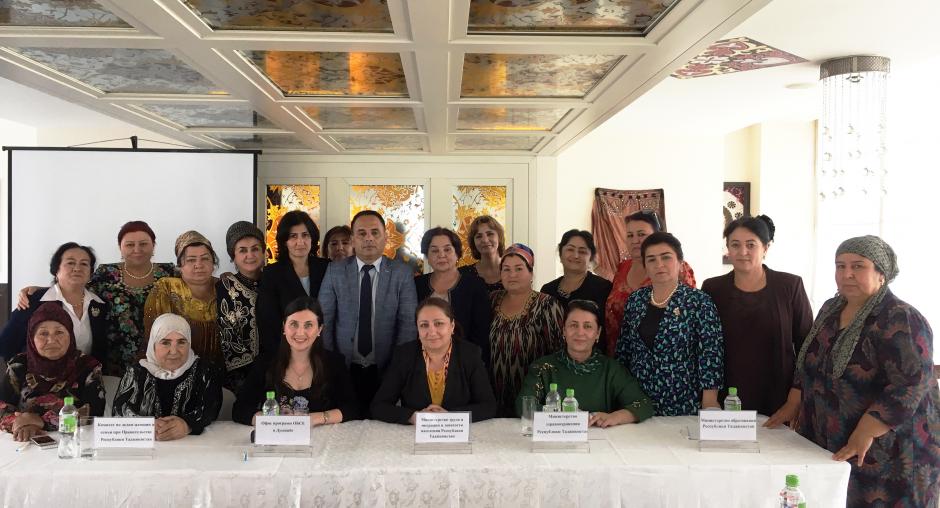OSCE Programme Office in Dushanbe promotes gender equality by supporting working groups of women leaders

A one-day meeting of the informal Central Co-ordination Body resulted in putting together 14 recommendations aimed at finding solutions for issues that impede the advancement of women in Tajikistan. It was organized by the OSCE Programme Office on 4 May 2018 in Dushanbe.
The Central Co-ordination Body was set up to support the work of regional working groups of women leaders by helping them to share information, collect proposals and analyze information they provide on the situation of women on the ground.
The recommendations included proposals related to raising awareness among women about their health rights, organizing a pilot project with a group of women and teaching them how to open and run a hostel in their houses. Using social media to communicate with the Central Co-ordination Body and to be notified about meeting organized by the State Committee for Women and Family Affairs was also among the recommendations.
The meeting brought together some 20 representatives from regional working groups of women leaders, including a representative from the Committee on Women and Family Affairs, representatives from the ministries of health and labour, women politicians and civil society members.
“As a result of this meeting the OSCE will further support the governmental structures, national gender experts and civil society to find local solutions for local problems to improve the situation of women in each region," said Vesna Ivanovikj-Castarede, Gender and Anti-Trafficking Officer at the OSCE Programme Office in Dushanbe.
In the next six months members of the workings groups will work on the implementation of the recommendations in their areas of expertise and will report about the results at the end of the year during the next meeting of this body.
The Central Co-ordination Body was established in November 2017 with the intention to work on gender equality issues identified in different regions in Tajikistan: in the northern Sughd, in the southern Khatlon and the central Rasht regions.
